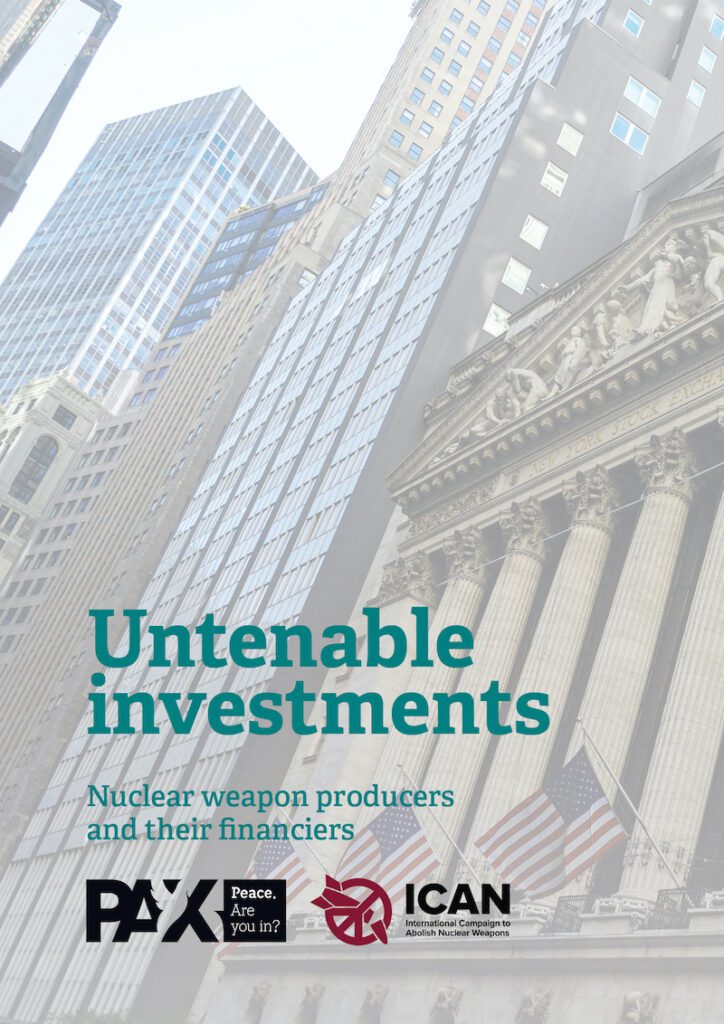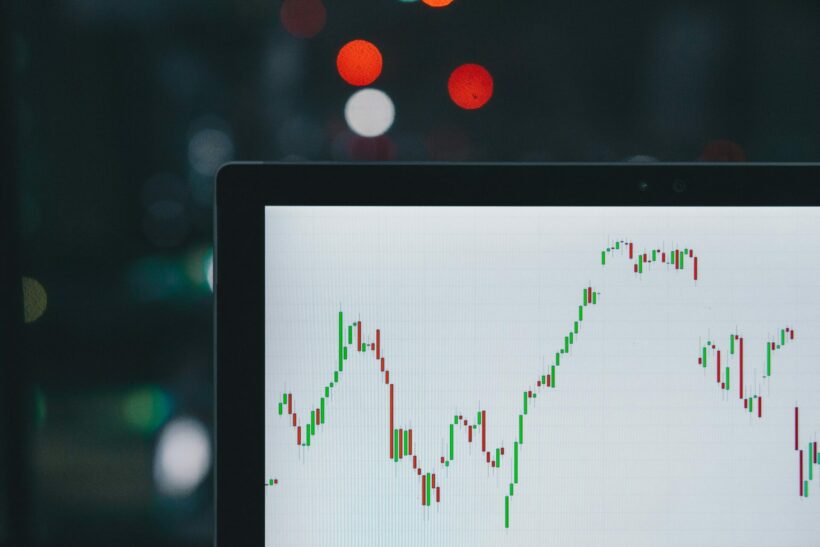A new report by Don’t Bank on the Bomb reveals that the number of financial institutions with significant investments in companies involved in the production of nuclear weapons fell from 306 to 287 in 2023.
This is the third year in a row that the number of investors has fallen since the Treaty on the Non-Proliferation of Nuclear Weapons (TPNW) came into force.
ICAN and PAX’s Untenable Investments report shows that in 2023, 287 financial institutions have investments in one or more of the 24 nuclear weapons companies, compared to 306 identified the previous year. These include Spain’s BBVA, Banco Santander, La Caixa, Banco de Sabadell and Sociedad Estatal de Participaciones Industriales.
According to the publication, the total amount made available to these 24 companies was higher, mainly through increased loan and equity financing. These 24 companies are major contributors to the maintenance and modernization of the nuclear arsenals of the United States, China, Russia, France, India, and the United Kingdom.
Companies building the bomb
All nine nuclear weapon states are expanding their nuclear capabilities and investing heavily in their nuclear arsenals. The 24 companies identified in the report are the most involved in these efforts. Currently, 287 investors from 28 countries continue to seek profits from nuclear weapons production.
Most of these companies are also involved in the production of other weapons and defense materials, and several governments, particularly in Europe and North America, have actively encouraged increased capital flows into the sector to supply Ukraine as well as their militaries.

The stigma of nuclear weapons
The Nuclear Non-Proliferation Treaty (TPNW) has created a new international norm that stigmatizes nuclear weapons and the companies that produce them. More and more institutions are taking environmental, social, and governance (ESG) considerations seriously and choosing to divest from nuclear – and other controversial – weapons. The association with nuclear weapons production continues to tarnish these companies and keep them out of the investment universe of mainstream financial institutions.
The ICAN and PAX study shows that since the Treaty on the Prohibition of Nuclear Weapons (TPNW) came into force three years ago, 41.5% more institutions have adopted policies restricting investment in companies in this sector.
Investors
The 287 financial institutions listed in the report own at least 0.5% of the outstanding shares or bonds of, or provide loans or underwriting services to, one or more of the 24 companies listed in the report that contribute to the production of nuclear weapons.
Of the 287 investors listed, only three come from countries whose governments are parties to the TPNW. In at least one case, these investments, although attributed to the parent company in the report, were made by subsidiaries located in jurisdictions outside the area currently covered by the TPNW.
At the Second Meeting of TPNW States Parties at the UN at the end of last year, 111 international financial institutions, representing over a billion dollars in investments, issued a statement reaffirming their commitment to nuclear disarmament and urging governments to work with the financial sector to address this urgent global issue.
This demonstrates that a growing number of institutions are unwilling to compromise their values to profit from the modernization of nuclear arsenals by nuclear-armed states.
List of 24 companies included in the report
1. Airbus (France)
2. BAE Systems (France, UK, USA)
3. Bechtel (United States)
4. Bharat Dynamics (India)
5. Boeing (United Kingdom, United States)
6. China Aerospace Science and Technology (China)
7. Fluor (United States of America)
8. General Dynamics (United Kingdom, United States)
9. Honeywell International (United States)
10. Huntington Ingalls Industries (HII) (United States)
11. Jacobs Solutions (formerly Jacobs Engineering) (United States)
12. L3Harris Technologies (United States)
13. Leidos (United States of America)
14. Leonardo (France)
15. Lockheed Martin (United Kingdom, United States)
16. Northrop Grumman (United Kingdom, United States)
17. Peraton (United States)
18. RTX (formerly Raytheon Technologies) (United States)
19. Rolls-Royce (United Kingdom)
20. Rostec (Russia)
21. Safran (France)
22. Textron (USA)
23. Thales (France)
24. Walchandnagar Industries Limited (India)










